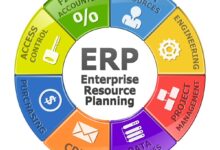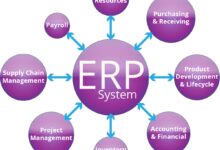Oracle NetSuite Pricing: 7 Shocking Truths You Must Know
Thinking about Oracle NetSuite but overwhelmed by the pricing? You’re not alone. With its powerful cloud ERP capabilities, NetSuite promises efficiency—but what does it really cost? Let’s break down the real numbers, hidden fees, and smart strategies to get the best deal.
Understanding Oracle NetSuite Pricing Structure

Oracle NetSuite pricing isn’t a one-size-fits-all model. It’s a modular, subscription-based system that scales with your business needs. Unlike traditional ERP systems with hefty upfront licensing fees, NetSuite operates on a Software-as-a-Service (SaaS) model, meaning you pay monthly or annually based on users, modules, and services used. This flexibility makes it attractive for growing businesses, but the lack of transparent public pricing often leaves prospects guessing.
Subscription-Based Model Explained
NetSuite’s core pricing revolves around recurring subscription fees. These are typically billed annually, though monthly options exist. The cost depends on the number of users, the specific modules (like financials, CRM, or inventory), and the level of support required. Oracle doesn’t publish exact prices online—instead, you must request a custom quote, which can make comparison shopping tricky.
- Monthly vs. annual billing: Annual contracts often offer discounts.
- No perpetual license option: Everything is cloud-hosted and subscription-based.
- Auto-renewal clauses: Contracts usually renew automatically unless canceled.
Core Components That Influence Cost
The total cost of NetSuite isn’t just about the base subscription. Several components contribute to the final price:
Users: Full, employee, and read-only users have different price tiers.Modules: Core financials, CRM, e-commerce, inventory, and HR each add cost.Customizations: Tailoring workflows or reports increases implementation and ongoing costs.Support & Updates: Included in the subscription but can vary by service level.
.”NetSuite’s pricing is like a puzzle—each piece adds value, but only when you see the full picture can you understand the total cost.” — ERP Consultant, Gartner Peer Insights
Oracle NetSuite Pricing: Core Modules and Their Costs
To understand oracle netsuite pricing, you need to know how much each module contributes.NetSuite offers a suite of integrated applications, and while some are included in the base package, others are add-ons with separate fees.Let’s explore the most common modules and their typical cost ranges..
NetSuite Financial Management
This is the foundation of the platform. NetSuite Financials includes general ledger, accounts payable/receivable, budgeting, and financial reporting. It’s usually included in the base ERP package, but advanced features like multi-subsidiary or multi-currency support may incur additional fees.
- Base financials: Often bundled with the core ERP subscription.
- Advanced financials: Add-ons for complex organizations can cost $1,000–$3,000/month.
- Compliance features: SOX, GAAP, and IFRS reporting tools may require extra licensing.
NetSuite CRM and Sales Force Automation
The CRM module enhances sales tracking, lead management, and customer engagement. While basic CRM features are sometimes included, full CRM functionality (like marketing automation or partner relationship management) is a paid add-on.
- CRM Suite: Typically adds $100–$200 per user/month.
- Sales Force Automation: Includes forecasting and pipeline management.
- Partner Relationship Management (PRM): Can cost an additional $50–$150 per partner user/month.
NetSuite Inventory and Order Management
For businesses with complex supply chains, inventory and order management are critical. This module supports real-time inventory tracking, demand planning, and fulfillment workflows.
- Inventory Management: Adds $50–$150 per user/month.
- Advanced Inventory: Features like lot/serial tracking or bin management cost extra.
- Order Management: Streamlines sales orders, returns, and drop-shipping.
Oracle NetSuite Pricing by User Type and Tier
User-based licensing is a major factor in oracle netsuite pricing. Not all users are priced the same—NetSuite categorizes users into different tiers based on functionality and access level. Understanding these tiers helps you optimize costs.
Full User vs. Employee Center User
Full users have complete access to NetSuite’s features and are the most expensive. Employee Center users, on the other hand, have limited access—ideal for staff who only need to view payroll, submit time-off requests, or access HR documents.
- Full User: Typically $99–$199/month.
- Employee Center User: Around $10–$20/month.
- Read-Only User: $5–$15/month for basic reporting access.
Role-Based Pricing and Cost Optimization
NetSuite allows role-based licensing, meaning you can assign users based on their job function. This helps avoid overpaying for unnecessary access.
- Sales Reps: May only need CRM access, not full ERP.
- Warehouse Staff: Can use limited inventory roles instead of full licenses.
- Executives: Often only need reporting dashboards, not transactional access.
“One of the biggest cost leaks in NetSuite implementations is over-licensing. Companies often assign full users when a lighter tier would suffice.” — NetSuite Partner, ERP Focus
Implementation Costs: The Hidden Part of Oracle NetSuite Pricing
While subscription fees get most of the attention, implementation costs can be just as significant. Oracle NetSuite pricing doesn’t include setup, data migration, training, or customization—these are handled by NetSuite or certified partners and billed separately.
Typical Implementation Fees and Timeframes
Implementation costs vary widely based on business complexity, number of modules, and data volume. Small businesses might spend $20,000–$50,000, while mid-sized or global companies can pay $100,000–$500,000 or more.
- Small business (1–50 users): $20,000–$75,000.
- Mid-market (50–200 users): $75,000–$250,000.
- Enterprise (200+ users): $250,000+.
Timeframes range from 3 to 6 months for standard implementations, but complex rollouts can take over a year.
Data Migration, Training, and Customization Costs
These are often underestimated but critical to a successful NetSuite deployment.
- Data Migration: Transferring data from legacy systems can cost $5,000–$50,000 depending on volume and cleanliness.
- Training: End-user training ranges from $50–$150 per user. Comprehensive programs cost more.
- Customization: Workflow automation, custom reports, or integrations can add $10,000–$100,000+.
Learn more about NetSuite implementation services directly from Oracle’s official site.
Oracle NetSuite Pricing for Different Business Sizes
Oracle NetSuite pricing scales with your business. While it’s marketed as a solution for growing companies, the cost structure differs significantly between small, mid-sized, and large enterprises.
Small Business Pricing (1–50 Users)
For small businesses, NetSuite offers the “NetSuite OneWorld” or “NetSuite ERP” packages tailored for startups and SMBs. These often include core financials, basic CRM, and inventory.
- Monthly subscription: $1,000–$3,000.
- Implementation: $20,000–$75,000.
- Total first-year cost: $30,000–$100,000.
Many small businesses opt for the NetSuite Startup Program, which offers discounted rates and support for early-stage companies.
Mid-Market Pricing (50–200 Users)
Mid-sized companies often require multi-subsidiary support, advanced reporting, and deeper integrations. This increases both subscription and implementation costs.
- Monthly subscription: $5,000–$15,000.
- Implementation: $75,000–$250,000.
- Total first-year cost: $150,000–$400,000.
These businesses often use SuiteCloud for custom development and SuiteAnalytics for advanced reporting.
Enterprise Pricing (200+ Users)
Large enterprises with global operations use NetSuite OneWorld for multi-currency, multi-language, and multi-subsidiary management. Pricing is highly customized and negotiated directly with Oracle.
- Monthly subscription: $20,000+.
- Implementation: $250,000–$1M+.
- Total first-year cost: $500,000–$2M+.
Enterprises often engage premium partners like ERPNext or Deloitte for implementation and ongoing support.
Oracle NetSuite Pricing Add-Ons and SuiteApps
Beyond the core modules, NetSuite’s ecosystem includes hundreds of SuiteApps—third-party and Oracle-developed add-ons that extend functionality. These can significantly impact oracle netsuite pricing.
SuiteCloud Platform and Custom Development
SuiteCloud allows businesses to build custom applications, workflows, and integrations. While powerful, it requires developer expertise and can increase costs.
- SuiteCloud Developer License: Often included for partners.
- Custom App Development: $10,000–$100,000+ depending on complexity.
- Integration with external systems (e.g., Shopify, Salesforce): $5,000–$25,000.
Popular SuiteApps and Their Costs
Many businesses enhance NetSuite with SuiteApps for payroll, e-commerce, or industry-specific needs.
- Payroll (e.g., ADP, Gusto): $5–$15 per employee/month.
- E-commerce (SuiteCommerce): $500–$2,000/month.
- Advanced Reporting (Jet Reports): $100–$500/month.
- Industry-Specific Apps: Manufacturing, wholesale distribution, or services apps can add $1,000–$5,000/month.
Visit the NetSuite SuiteApp Marketplace to explore available integrations.
How to Negotiate Oracle NetSuite Pricing
Oracle NetSuite pricing is not fixed—it’s negotiable. Many businesses accept the first quote, but with the right strategy, you can save tens of thousands of dollars.
Timing Your Purchase for Maximum Savings
Oracle’s sales teams have quarterly and annual targets. Buying near the end of a quarter (March, June, September, December) can lead to better deals as reps try to close deals.
- Q4 (October–December): Often the best time to negotiate.
- Attend Oracle OpenWorld or NetSuite events: Special promotions are sometimes offered.
- Ask about discount programs: Startups, nonprofits, and educational institutions may qualify.
Leveraging Partners for Better Rates
While Oracle sells directly, many implementations are done through certified partners. These partners can sometimes offer bundled pricing or discounts on implementation services.
- Compare quotes from multiple partners.
- Ask about partner-led discounts or referral programs.
- Some partners offer fixed-price implementation packages.
“We saved over $40,000 on our NetSuite deal by negotiating during Q4 and using a partner with existing Oracle relationships.” — CFO, Mid-Market Manufacturer
Alternatives to Oracle NetSuite and Cost Comparison
If oracle netsuite pricing feels too steep, several alternatives offer similar functionality at different price points. Let’s compare NetSuite to top competitors.
NetSuite vs. SAP Business ByDesign
SAP’s cloud ERP targets mid-sized businesses and offers strong financials and supply chain features.
- NetSuite: $99+/user/month + implementation.
- SAP ByDesign: $120–$150/user/month, often higher implementation costs.
- Verdict: NetSuite is more flexible and scalable; SAP is more rigid but strong in manufacturing.
NetSuite vs. Microsoft Dynamics 365
Dynamics 365 offers modular ERP and CRM with deep Microsoft integration.
- NetSuite: Better for pure cloud ERP and financials.
- Dynamics 365: Stronger if you’re already using Microsoft 365.
- Pricing: Dynamics can be cheaper for small teams but scales less efficiently.
NetSuite vs. Acumatica
Acumatica is a growing competitor with a usage-based pricing model (not per user).
- NetSuite: Per-user pricing, higher upfront cost.
- Acumatica: Concurrent user model, potentially lower long-term cost.
- Best for: Acumatica suits businesses with many occasional users.
For a detailed comparison, check Capterra’s ERP comparison tool.
Real-World Oracle NetSuite Pricing Examples
Theoretical pricing is one thing, but real-world examples show how oracle netsuite pricing plays out in practice. Here are three anonymized case studies.
Case Study 1: E-Commerce Startup (15 Users)
A direct-to-consumer brand with 15 employees implemented NetSuite for financials, inventory, and e-commerce.
- Modules: Financials, CRM, SuiteCommerce, Inventory.
- Users: 10 full, 5 employee center.
- Subscription: $2,500/month.
- Implementation: $45,000.
- Total Year 1: $75,000.
They used the Startup Program for a 20% discount on the first year.
Case Study 2: Manufacturing Company (75 Users)
A mid-sized manufacturer with global suppliers needed multi-currency and advanced inventory.
- Modules: Financials, Inventory, Order Management, CRM, Payroll.
- Users: 50 full, 25 limited.
- Subscription: $9,000/month.
- Implementation: $180,000.
- Total Year 1: $288,000.
They negotiated a 10% discount by signing a three-year contract.
Case Study 3: Enterprise Services Firm (300 Users)
A global consulting firm with 300 employees across 5 countries.
- Modules: OneWorld, Advanced Financials, Project Management, HR.
- Users: 200 full, 100 read-only.
- Subscription: $45,000/month.
- Implementation: $600,000.
- Total Year 1: $1.14M.
They used a premium partner and secured a custom SLA with 24/7 support.
Common Mistakes to Avoid in Oracle NetSuite Pricing
Even experienced buyers make costly errors when evaluating oracle netsuite pricing. Avoid these common pitfalls.
Underestimating Implementation Time
Many assume NetSuite can be up and running in weeks. In reality, data cleanup, testing, and training take months. Rushing leads to errors and rework.
- Plan for 3–6 months minimum.
- Allocate internal resources for the project.
- Don’t skip user acceptance testing.
Over-Licensing Users
Assigning full users to employees who only need basic access inflates costs unnecessarily.
- Audit user roles before licensing.
- Use employee center for HR-only access.
- Review licenses annually.
Ignoring Ongoing Costs
Subscription and implementation are just the beginning. Ongoing costs include support, upgrades, SuiteApp renewals, and internal admin time.
- Budget for 15–20% annual increase for add-ons and inflation.
- Factor in internal IT or finance team time.
- Monitor SuiteApp subscriptions to avoid paying for unused tools.
What is the starting price for Oracle NetSuite?
The starting price for Oracle NetSuite is typically around $1,000 per month for a small business package with core financials and a few users. However, when you include implementation, the total first-year cost usually starts at $30,000.
Does Oracle NetSuite charge per user?
Yes, Oracle NetSuite pricing is largely based on the number and type of users. Full users cost $99–$199/month, while employee center or read-only users are significantly cheaper.
Are implementation costs included in NetSuite’s subscription?
No, implementation costs are separate and paid upfront or in phases during deployment. These include consulting, data migration, training, and customization.
Can you negotiate Oracle NetSuite pricing?
Yes, Oracle NetSuite pricing is negotiable. You can get discounts by timing your purchase, signing long-term contracts, or working with certified partners.
What factors increase NetSuite’s total cost?
Key cost drivers include the number of users, additional modules (CRM, e-commerce), implementation complexity, customizations, SuiteApps, and ongoing support needs.
Oracle NetSuite pricing is complex but manageable with the right knowledge. From user tiers to implementation fees and hidden add-ons, understanding the full cost structure is crucial. While NetSuite offers powerful, scalable ERP capabilities, its true price goes beyond the monthly subscription. By analyzing your needs, negotiating wisely, and avoiding common mistakes, you can maximize value and minimize unnecessary expenses. Whether you’re a startup or a global enterprise, a clear understanding of oracle netsuite pricing empowers smarter decisions and better ROI.
Further Reading:



